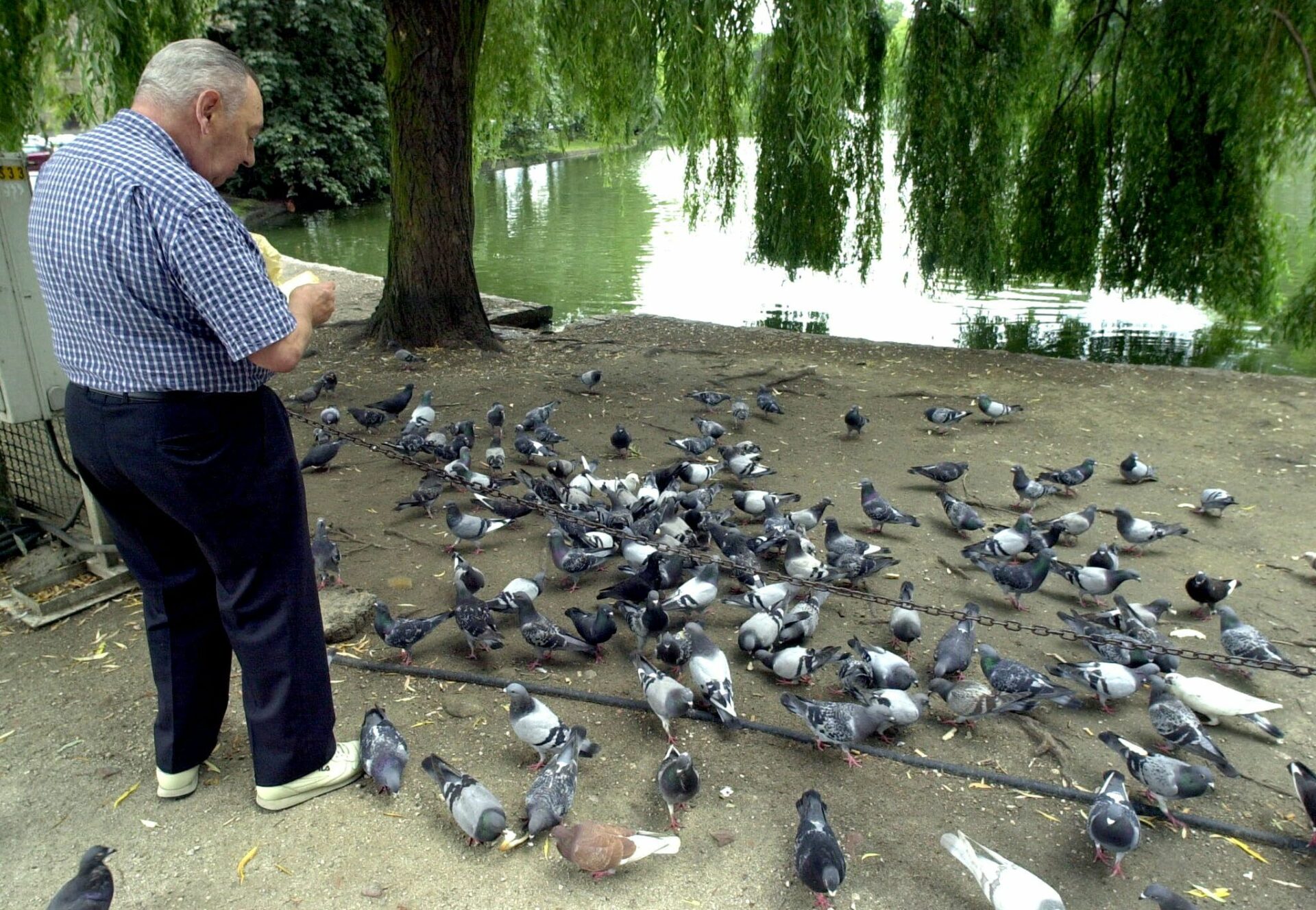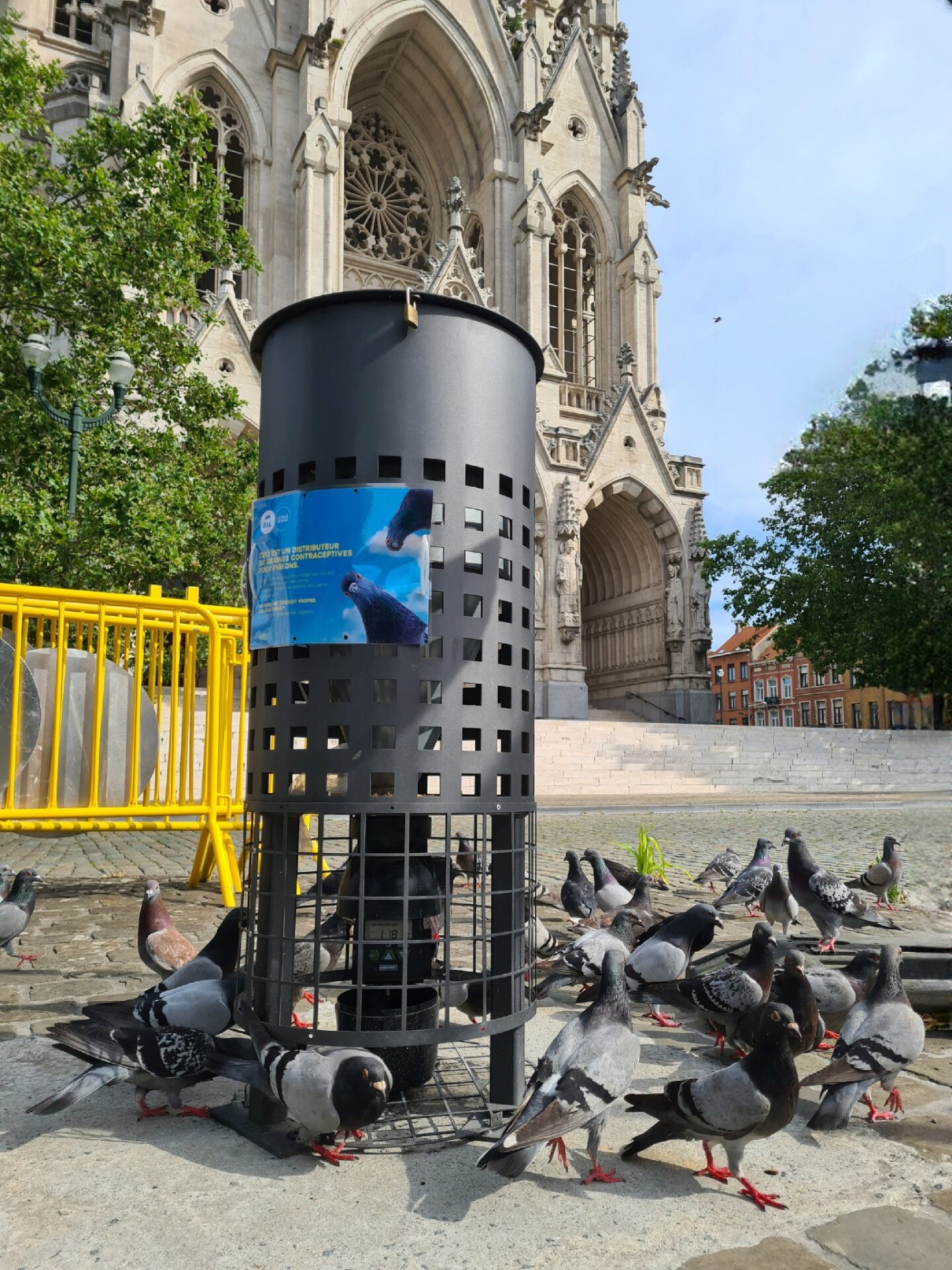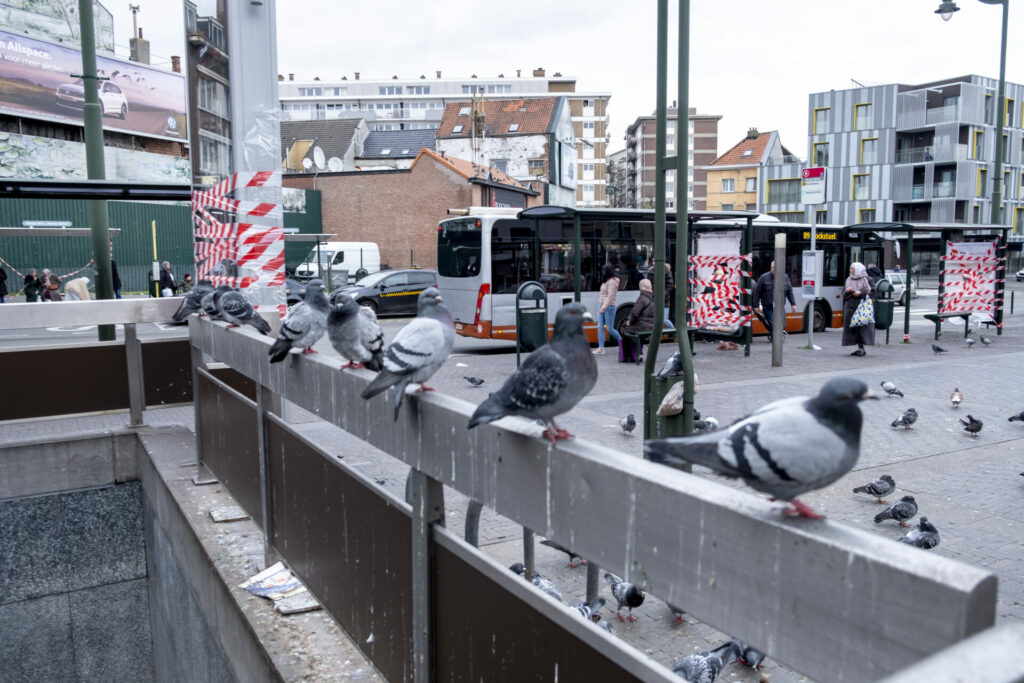Pigeon populations are spiralling out of control, and so too has the nuisance they pose. Commune by commune, efforts are being made to control their numbers in Brussels.
"It is not every day we speak about contraception for pigeons, but here we are." Deborah Lorenzino, Schaerbeek's councillor for Public Cleanliness and Green Spaces, started her discussion at the town hall on controlling pigeon populations lightheartedly. But the nuisance caused by the birds – often referred to as rats with wings – is no laughing matter.
"This overpopulation of pigeons is creating an inconvenience in the public space. They pick open bin bangs which litters our pavements, they poop on monuments, buildings and sometimes on people's heads," she told The Brussels Times. The cost of cleaning their acidic excrement is eye-watering, costing up to €30 per pigeon every year.
"But they also transmit diseases to people," ranging from toxoplasmosis to salmonella and ornithosis.
Feeding pigeons: Innocent fun or exacerbating the problem?
As pigeons can reproduce up to 12 times a year and have a life expectancy of five years, it is no surprise the population is growing so rapidly. But the feeding of these birds by citizens has also contributed to it.
"Pigeons are overweight because they're often fed with unsuitable food such as pasta and pastries. This contributes to them developing health problems." Supplementary feeding also prevents natural selection, allowing diseased specimens to survive and driving a degeneration of the species.
Secondly, food that isn't eaten by the pigeons also attracts rats, which are getting bigger because they have more food at hand. The municipality of Schaerbeek hung out posters and banners and launched awareness campaigns in schools to underline that it's forbidden to feed pigeons. As a last resort, fines of €140 are issued (if they are caught repeatedly, the fine increases).

Credit: Belga/ Herwig Vergult
But these efforts alone are not bearing fruit. Lorenzino argued that the overpopulation of pigeons is a regional issue – "a pigeon can cross the Brussels region in ten minutes" – and has been calling on the government to act for several years.
Schaerbeek has since decided to take charge on its own, inspired by the region's communes of Ixelles and the City of Brussels, which have both started working with contraceptive seeds for pigeons and seen their situations improve dramatically.
In Ixelles, the population halved around Rue de Hennin and Place Blyckaerts between the end of November 2022 and August 2023. On Square Clémentine in Laeken, the population more than halved between 2019 and the start of 2022. After five years, populations here should be reduced by up to 80%.
"Contraceptive seeds are an efficient way to reduce the pigeon population, as pigeons that die are not replaced by newborns," François Descamps, Director of Communications for the City of Brussels Councillor for Animal Welfare, Zoubida Jellab, told The Brussels Times.
"Here, the system continues to work well, so we will move forward with it." In addition to the seven distributors already in place, six more will be placed during the year, including on Place Bourse, De Brouckère and near Bailli.
Targeting pigeons
The product distributed here and that will be used in Schaerbeek are pieces of hard corn coated with an anti-parasitic agent of which contraception is a side effect. The technique is recommended by several expert organisations including GAIA and is overseen by NeorniVet's Vets for City Pigeons, which specialises in avian medicine and veterinary products. The team here has been working with pigeon contraceptives for ten years.
One of the veterinarians, Pieter Colla, explained that the technique poses no risk to pigeons, not to other bird species and animals, as it is specifically tailored to pigeons. "The qualities that contribute to them becoming pests – colonising squares and eating in groups – are also useful for us to target them," he told The Brussels Times. The vets install automatic seed distributors in places where pigeons come together in large groups.

A distribution point of the seeds. Credit: Vets for City Pigeons
The system targets dominant pigeons which make up 15% of the pigeon populations and drive 90% of the reproduction. "We treat this group so we can tackle the problem at its heart. We do this by counting how many pigeons gather in one place and distribute enough food for 15% of that number, once every day."
Footage of feeding time shows that it takes about one minute, after which all pigeons leave. "This means it is very difficult for other species to butt in and take the food." The active ingredient in the pills, nicarbazin, takes seven days to have an effect. "Only animals that eat that product every day will become sterile. A casual passer-by who eats two of them won't."
The size of corn kernels means that all birds smaller than pigeons, such as sparrows and blackbirds, are anatomically unable to eat it. Birds of prey that eat pigeons will also not become sterile because nicarbazin splits into two components when ingested by pigeons, meaning bigger birds don't come into contact with nicarbazine in its full form. "This ensures there is no effect on their reproduction."
There is also no risk for cats and dogs, as they have to eat almost 30kg of the product per month for it to have a toxic reaction. "And we never distribute such large quantities," Colla stressed.
Every distribution location is followed up by a vet, who checks whether pigeons are the ones eating the feed, whether the dose is still correct, and also gathers the results. Three times a year, these are brought together in a report to show authorities what the impact is.
During the discussion at the Schaerbeek city hall, some citizens expressed concerns about the cost involved. As each project is unique, putting a price tag on it is difficult. "But we are convinced that the cost, in proportion to the work and responsibility that is involved, but also taking into account the results, is a very democratic price," Colla noted.
Related News
- Pest control services report surge in rat infestations
- 'I think we are already too late': Raccoons arrive in Flanders
In Schaerbeek, ten sites where pigeons are causing the most nuisance are being analysed, from which five locations deemed as the most appropriate will be chosen. In a few weeks, distributors will be installed.
The implementation of distributors is already having an effect on the pigeon population in the city, and Colla argued that it will have an even greater effect if the system is implemented in more places across the whole region. However, he did stress that this will not eradicate pigeons. "This is not a way of killing pigeons," he said. "It is a way of controlling the population."
Citizens with questions about the system can contact the team at citypigeons@vetsforbirds.com

